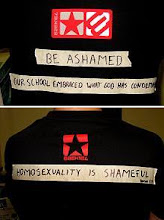Ozzy Osbourne sings of suicide, in dismissing a fan's family's claim that the singer caused the death, the court cites numerous examples of the theme in classic and modern literature. But the court also links the importance of protecting the singer's right to free expression to "the political process."
In "Borat," Sasha Baron Cohen portrays a Central Asian oaf who is preparing a "documentary-style" film about America for his government. He uses as foils "ordinary Americans" who taking him at face value, reveal their true colors, to the delight of audiences here and overseas, earning the film an Oscar nod for best unscripted adaptation. When the film grosses $260M, not all of these unwitting players got their joke. Then ten inevitable lawsuits alleged that Borat's producers invaded their privacy, misappropriated their image, put them in a "false light", and procured their agreement to be filmed under fraudulent pretenses. Each of the ten cases was dismissed, however. Read More!
Saturday, February 28, 2009
Wednesday, September 24, 2008
T-Shirt Wars: Tolerance Includes, Yes, Even Unpopular Views
When a student who disapproves of homosexuality wears a T-shirt that reads, "Be Happy, Not Gay," or "Homosexuality is Shameful", is that student a) exercising religious beliefs; b) enjoying the right to free speech; or c) infringing on the rights of others? At what point does a provocative or unpopular message become disruptive, harassing or even "hate speech"?
Schools are permitted and required to maintain order, and if there is a bona fide disruption, then schools can or should take action. Short of a disruption, can or should the school proactively take any action? What "dress code" regulations might withstand First Amendment scrutiny? Many have failed.
There is no "Hate Speech" exception to the First Amendment. But when does an unpopular message meet the narrow definition of "fighting words", the exception to the First Amendment prohibition against "content-based" or "viewpoint" discrimination?
No harassment can result if the shirt is worn in private (If a tree falls in a forest and no one is around to hear it ...). And most likely, no harassment can result if the shirt is worn in a gathering that includes only like-minded individuals. But what happens when it is worn to school and a student, staff or administrator complains?
Is it possible or even laudable to limit "life-style disapproving" speech, given that censorship of unpopular opinions is forbidden by the First Amendment? How can education, rather than official intervention, better achieve peace on Earth?
Schools are permitted and required to maintain order, and if there is a bona fide disruption, then schools can or should take action. Short of a disruption, can or should the school proactively take any action? What "dress code" regulations might withstand First Amendment scrutiny? Many have failed.
There is no "Hate Speech" exception to the First Amendment. But when does an unpopular message meet the narrow definition of "fighting words", the exception to the First Amendment prohibition against "content-based" or "viewpoint" discrimination?
No harassment can result if the shirt is worn in private (If a tree falls in a forest and no one is around to hear it ...). And most likely, no harassment can result if the shirt is worn in a gathering that includes only like-minded individuals. But what happens when it is worn to school and a student, staff or administrator complains?
Is it possible or even laudable to limit "life-style disapproving" speech, given that censorship of unpopular opinions is forbidden by the First Amendment? How can education, rather than official intervention, better achieve peace on Earth?
Thursday, July 31, 2008
On Cultural Icons: The Five Fuwa, or Olympic "Friendlies"
I suspect these five strange creatures are not Beijing's Olympic mascots as they pretend to be, but aliens from a toddler planet.
Creating official Olympic mascots is a complex project -- politicians and artists make strange bed fellows. Chinese folk artist Han Meilin (known as "Picasso" in the East) begged to be relieved of the assignment after over 1000 attempts to satisfy The Committee. The end result, however, is memorable, and provides ample fodder for satire and derision (recall the "Whazit" from the 1996 Atlanta Games). As the mother of a 6 year old who survived the teletubbies and is surrounded by Pokemon, I find it hard to deny the "Friendlies'" surrealistic appeal.
Creating official Olympic mascots is a complex project -- politicians and artists make strange bed fellows. Chinese folk artist Han Meilin (known as "Picasso" in the East) begged to be relieved of the assignment after over 1000 attempts to satisfy The Committee. The end result, however, is memorable, and provides ample fodder for satire and derision (recall the "Whazit" from the 1996 Atlanta Games). As the mother of a 6 year old who survived the teletubbies and is surrounded by Pokemon, I find it hard to deny the "Friendlies'" surrealistic appeal.
Subscribe to:
Comments (Atom)






